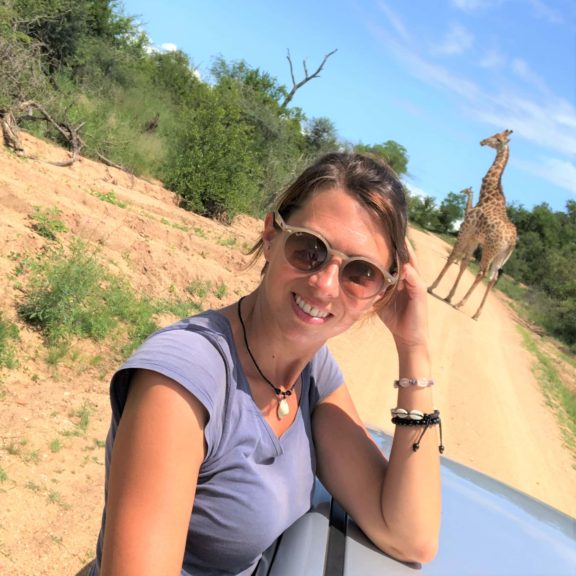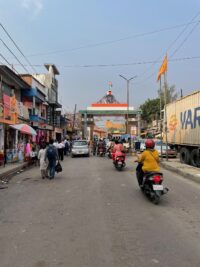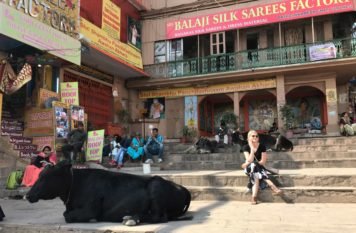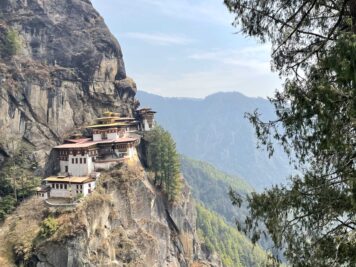We were a bit apprehensive about Mozambique.
We’d read and heard some bad stuff. Other travelers we’d met along the way (even including a couple we met last year in Myanmar) regaled us with tales of robberies and theft, unsafe beaches and at the very least a lot of dodgy attempts at all sorts of sneaky scams. There was the story we heard about a man riding in the back of a cab with his computer on his lap and the window down. Perhaps not a smart move. Sure enough someone yanked his PC out the window and when he instinctively reached out after it the thief chopped at his forearms with a machete. Or the father and son who arrived at their guesthouse, got out of their taxi, and were mugged in the driveway before they could reach the front door.
Maybe we felt a bit like this guy we saw in an advert back in Harare:

But we went ahead and crossed the border from Zimbabwe, figuring we’d just stay inside at night, split up our valuables and watch each other’s back constantly.
Twelve days in, and we still can’t figure out where these reports are coming from. Maybe we’re just lucky or really really savvy but we’ve not had even the slightest problem and neither has anyone else we’ve met in Mozambique. Maybe everyone just wants to keep this chilled out, Portugal-meets-Africa beach front country a fabulous secret. And so they should. The scenery is divine, the atmosphere is relaxed and easygoing. Locals, expats and travelers mingle together on the beach and in the bars and restaurants. It’s a Mecca for surfers and divers. There are no package tours and the long, serene beaches are as yet mostly undeveloped and unspoilt.
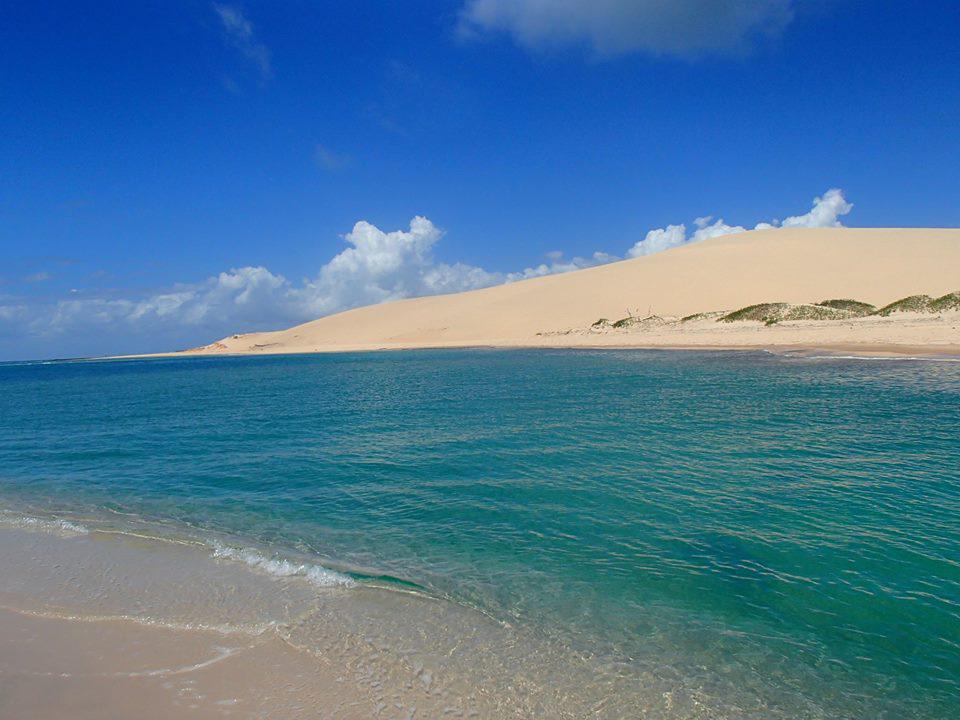
Ready for some relaxation, we lost no time in heading for the coastline.
Of course, we did some hard travel to get here. A very drunk man ‘assisted’ us in organising our bus tickets, which didn’t do much to inspire our confidence in the public transport. We set off early in the morning, leaving the heavy rains behind in Chimoio, the first major town after the border with Zimbabwe. Chimoio doesn’t seem to have any paved roads and the rains had turned the streets into a mudbath. I don’t know if my feet have ever been so dirty, my legs were coated in muck after a short walk down the street.
But as we travelled towards the Indian Ocean, the skies cleared into a magnificent blue, and the sun beat down on the palm fringed red dirt road ahead. At the top of every hill another stunning tropical vista unfolded in front of us. The bus stopped abruptly at a junction and the driver, together with most of the passengers around us, announced that we should get off here. We were still 22 kilometers from our destination, Vilankulo. We climbed down and stood in the hot dust as the bus pulled away. Soon enough a small boy befriended us and pointed us to the back of a pickup heading to the town.
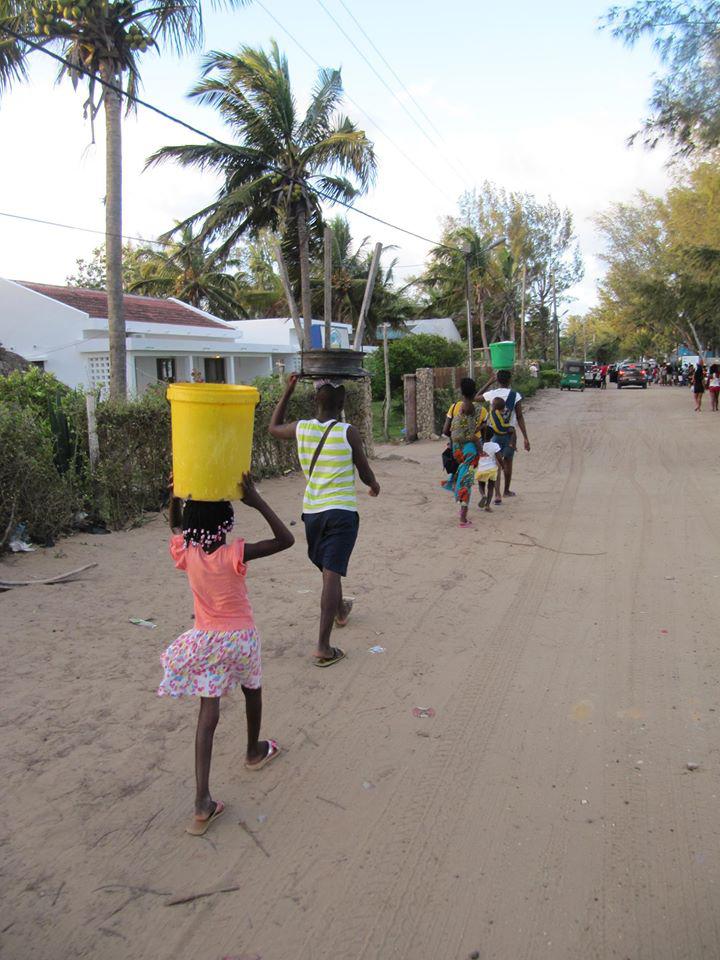
So we lost no time settling into life in this beach bungalow in Vilankulo:
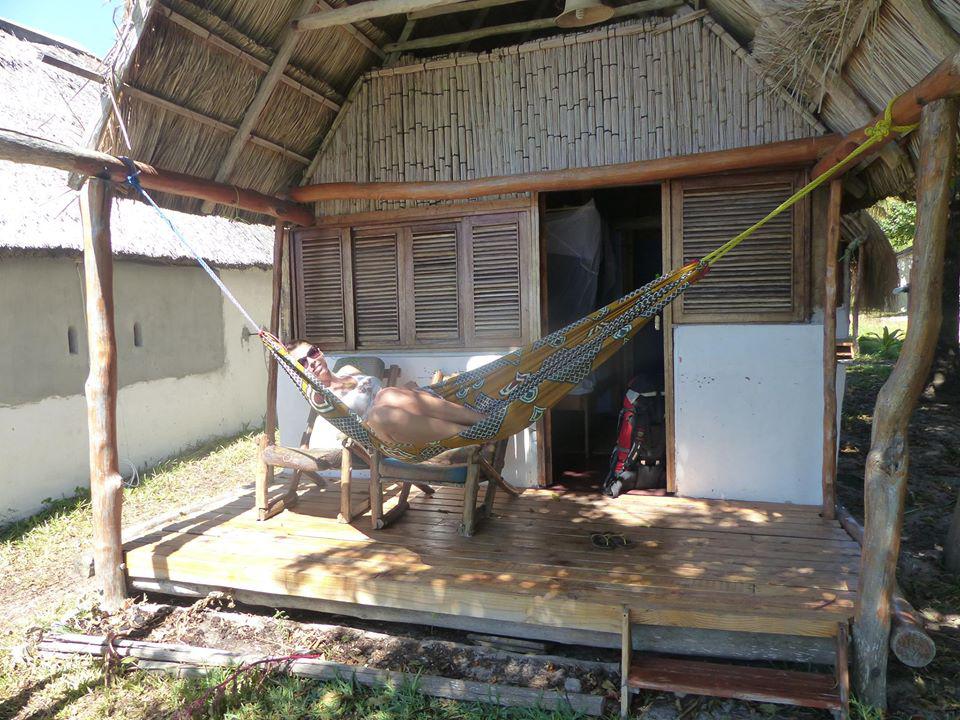
In the mornings we’d swing in the hammock or lounge on the verandah with coffee.
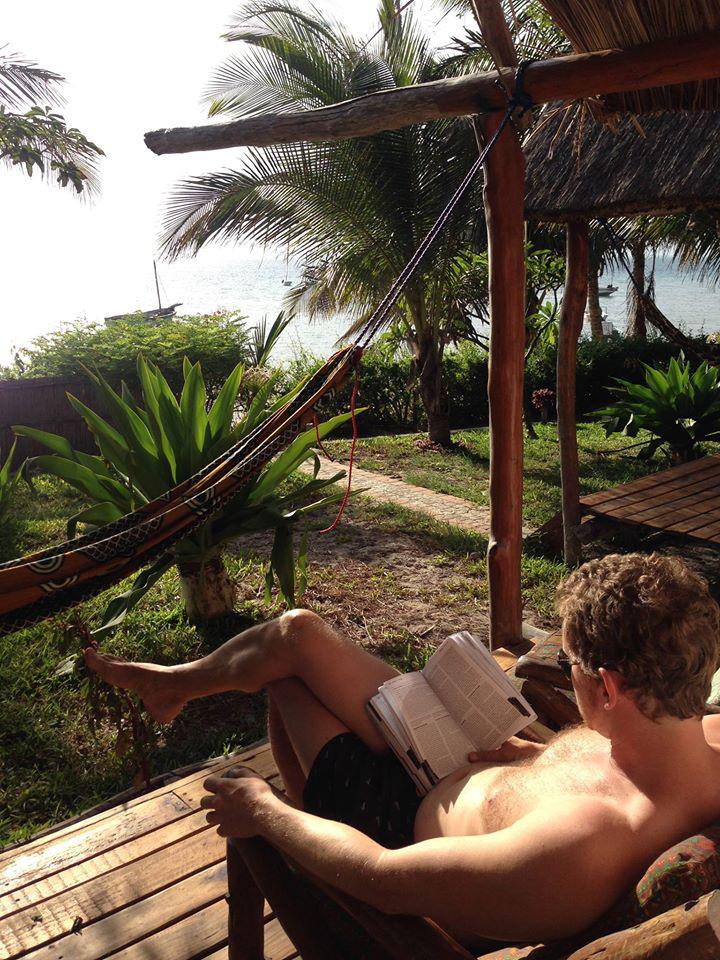
At night, the peace and quiet was interrupted only by drumming and singing on the beach, and the crashing waves.
We spent the next two days exploring the Bazaruto Archipelago. First, we took a dhow – that’s a traditional wooden African sailing boat – to Margaruque island.
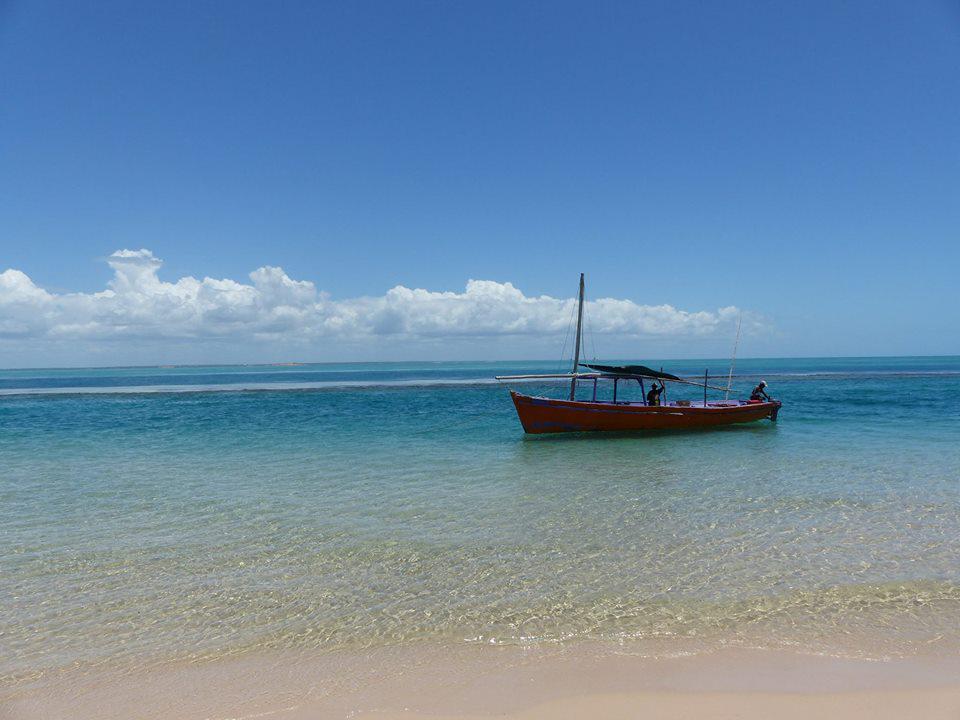
The archipelago is a protected national park and it’s absolutely stunning.
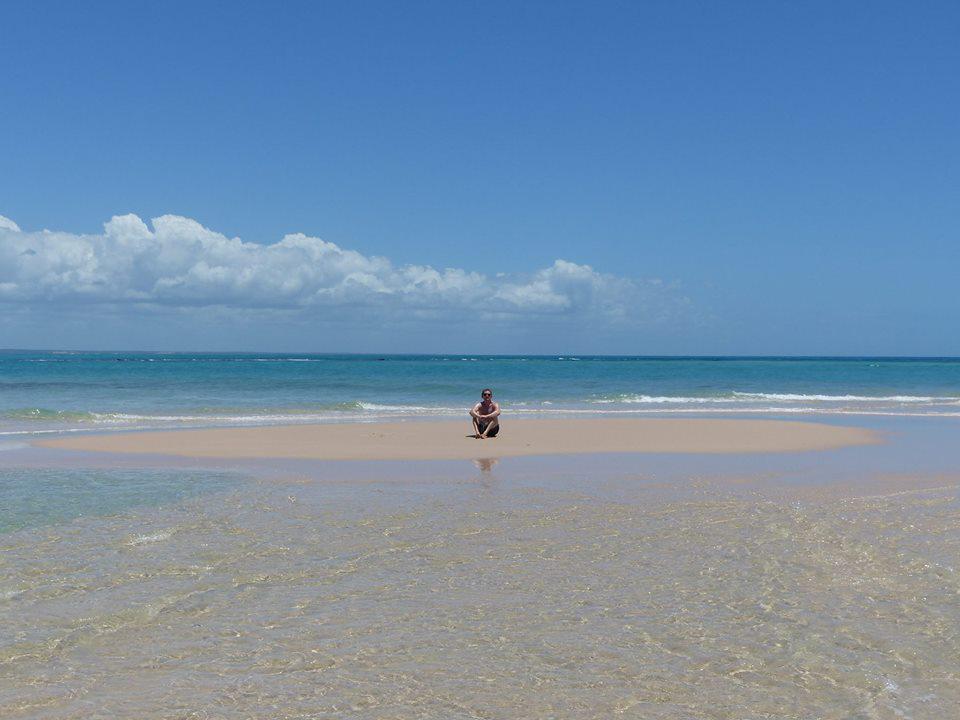
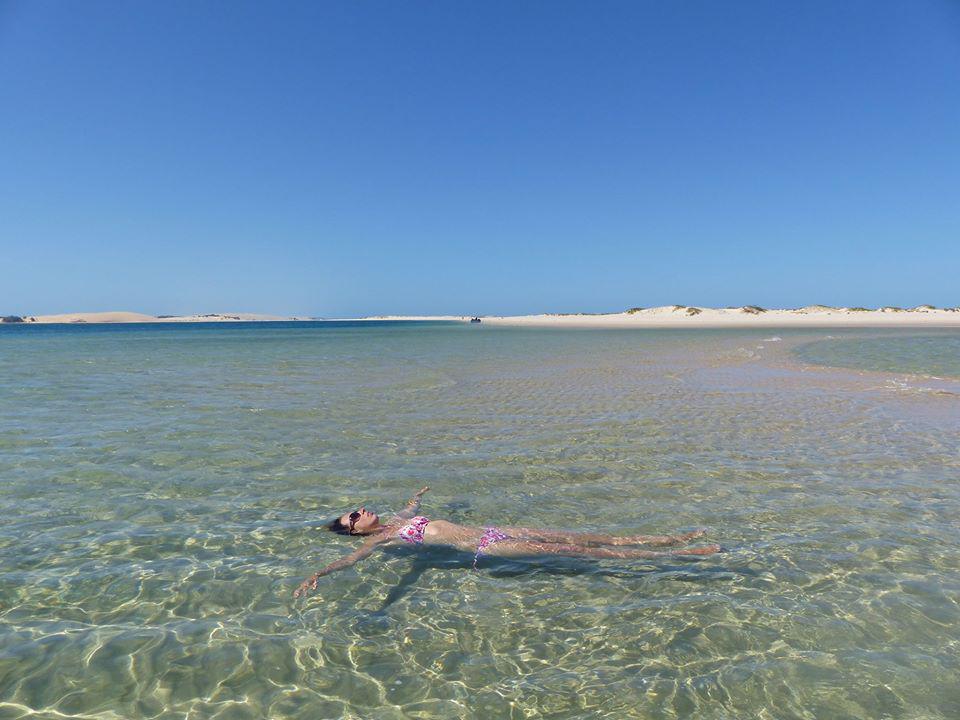
We explored the long empty beaches, stopping to swim whenever it got too hot to walk. The skipper made us a lunch of fresh barracuda and calamari before we sailed back:
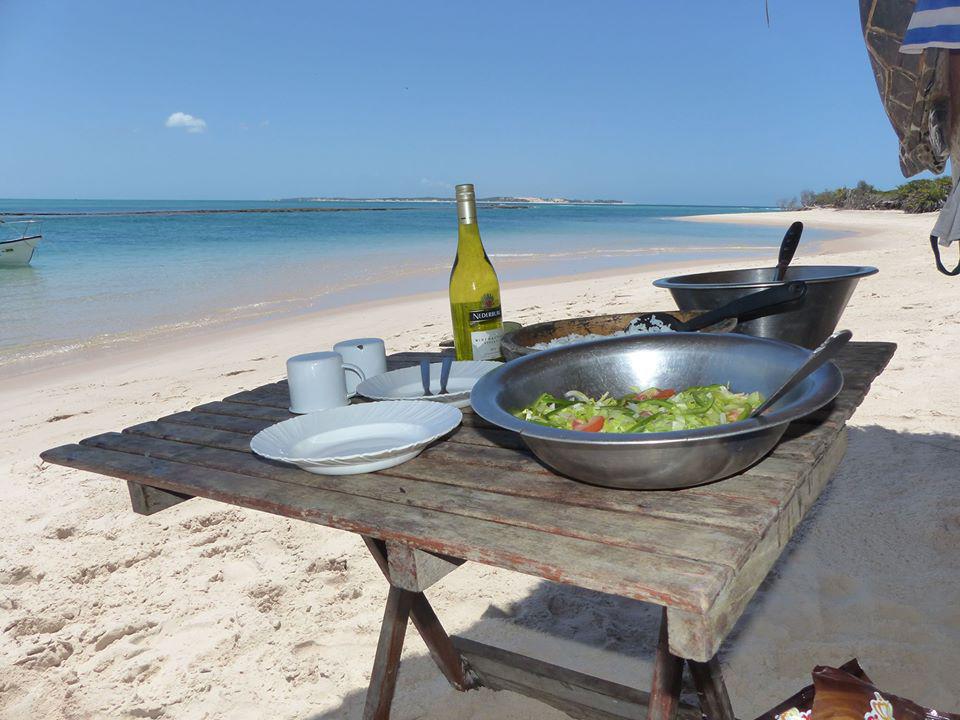
The next day we took a speedboat, first to Bazaruto itself and then to Benguera. In case you’re wondering, Africans drive speedboats the same way they drive any other vehicle (recklessly).
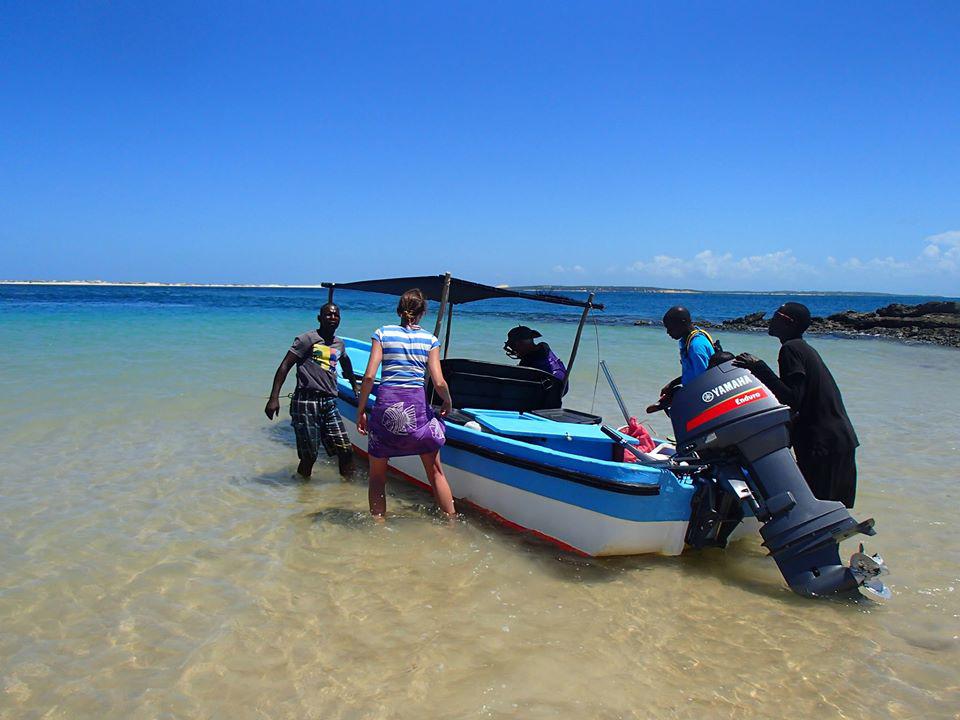
We climbed up a huge sand dune on Bazaruto for the view and then burned our feet on the run back down.
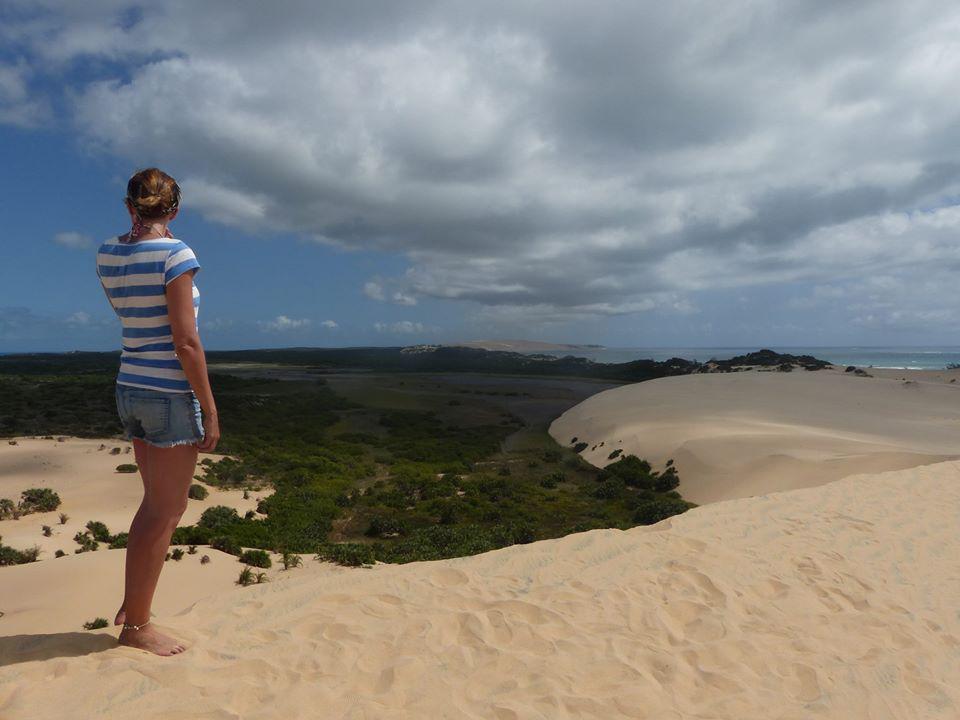
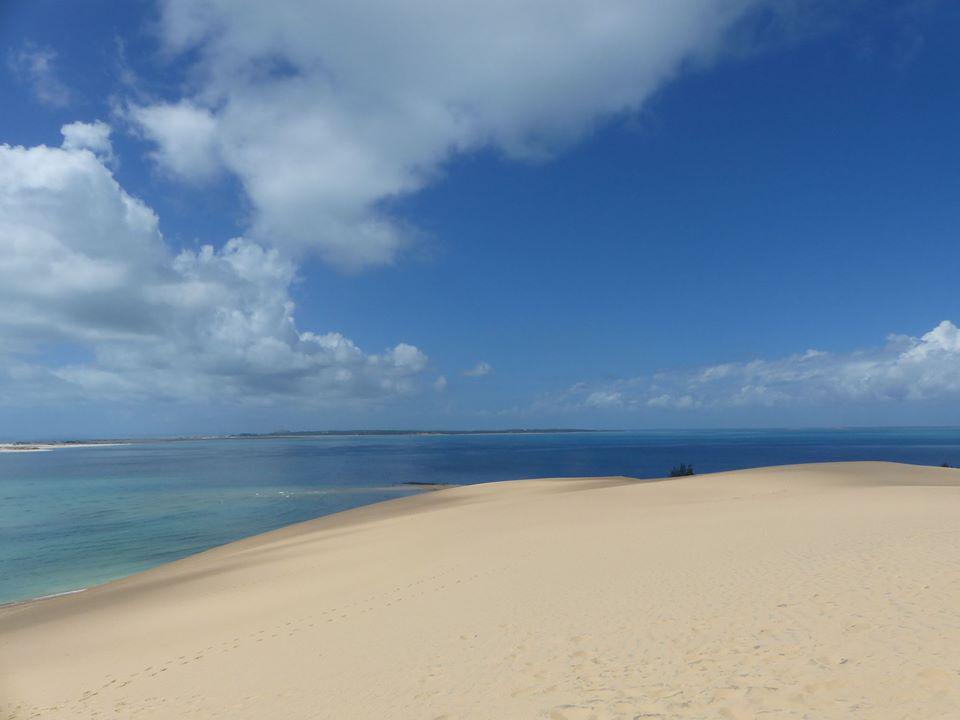
The boat dropped us off in the ocean and circled while we snorkeled Two Mile Reef.
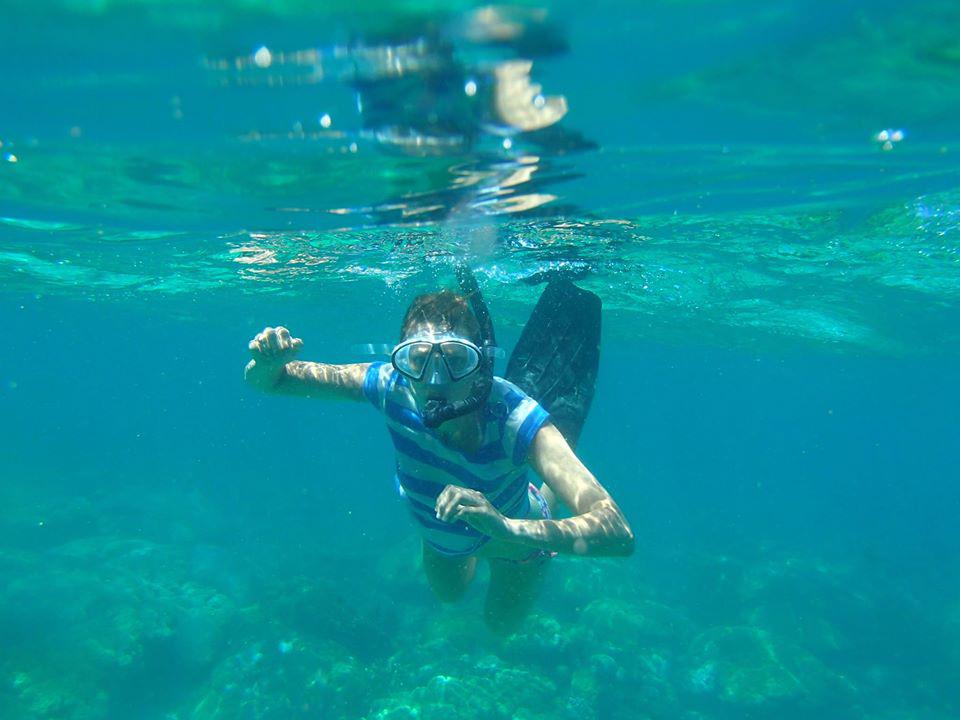
After five days of this we tore ourselves away to travel on to the next beach.
First we caught a minibus to Maxixe. Like most other countries around here, Mozambique should consider placing a sign at its borders saying ‘Leave any notion of personal space here.’ When a van meant to hold 12 or 14 people is packed with 25 passengers, you find yourself getting cosy with your seat mates. The ones who actually have a seat, anyway. You can just barely see Oyv here, under this guy’s arm:
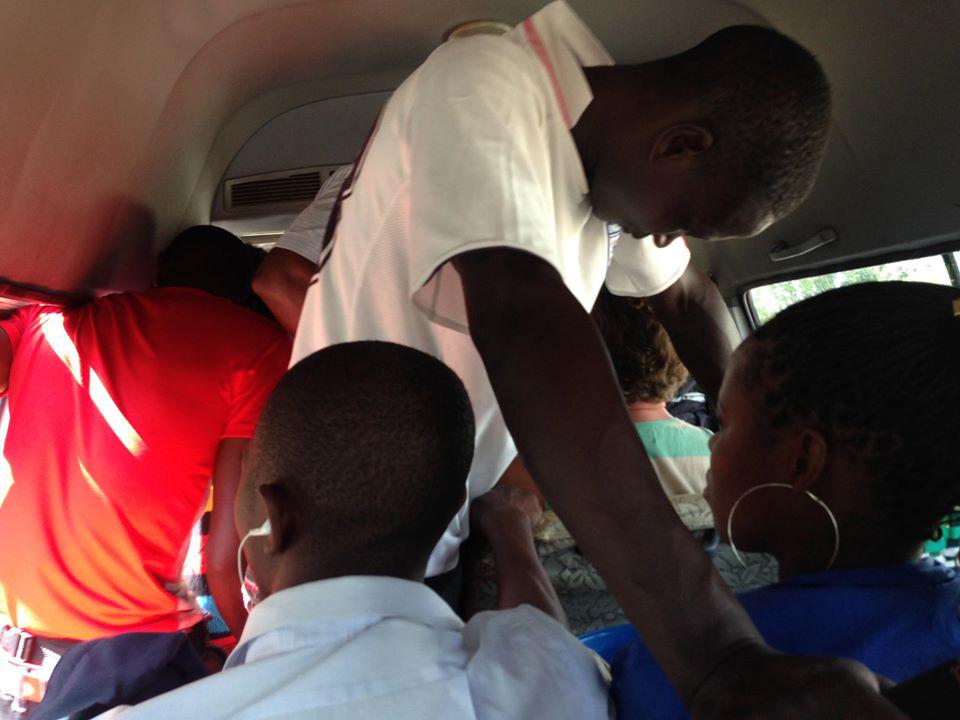
The bus inevitably broke down a couple of times; but not to worry, the conductor fixed it by removing the first row of seats, opening up the floor, and banging the engine really hard with a wrench.
Next we took a ferry (let’s be honest, it was a suffocatingly overcrowded fishing boat) to Inhambane and then, a bus on to Tofo.
In Tofo, pretty guesthouses and bungalow operations back the long white beach.
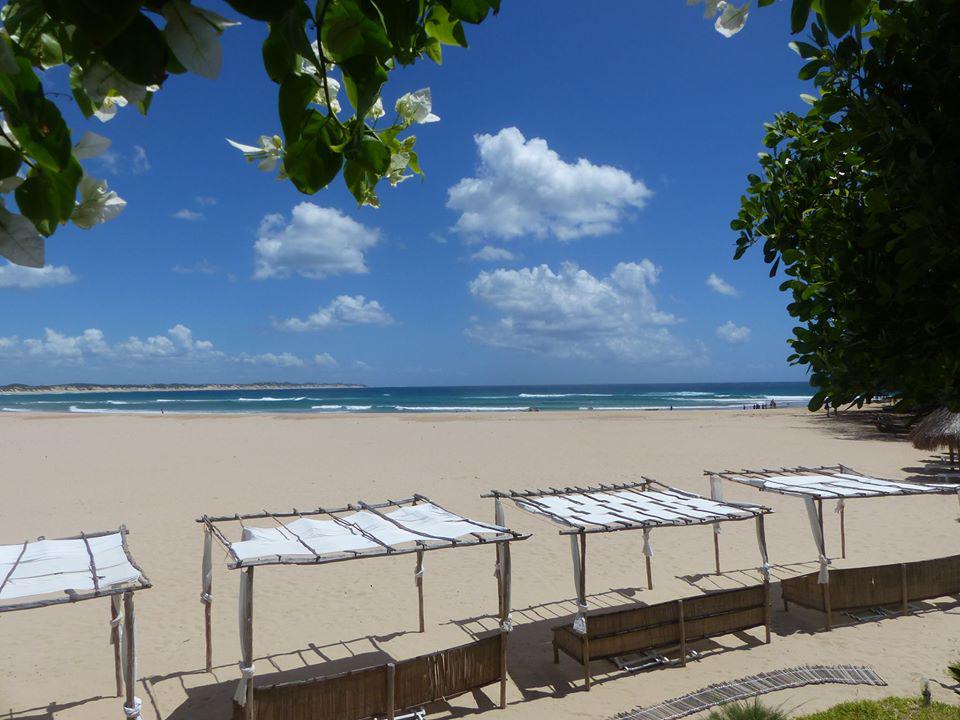
We moved into a seafront room with a big terrace and proceeded to while away the days with early morning runs on the beach, browsing in the markets, and conversations with other travelers.
I had a capulana dress made at a local tailor. We ate as much squid, prawns and fish as we could fit. We went regularly to a little place where the menu consisted of marinated squid or beef that you grill up yourself on a sizzling hot rock at the table.
Enroute to Tofo we’d stopped overnight in Inhambane. It’s a sleepy little town and both pretty and peaceful. We liked it, so we went there again for another night on our way to the capital, Maputo.
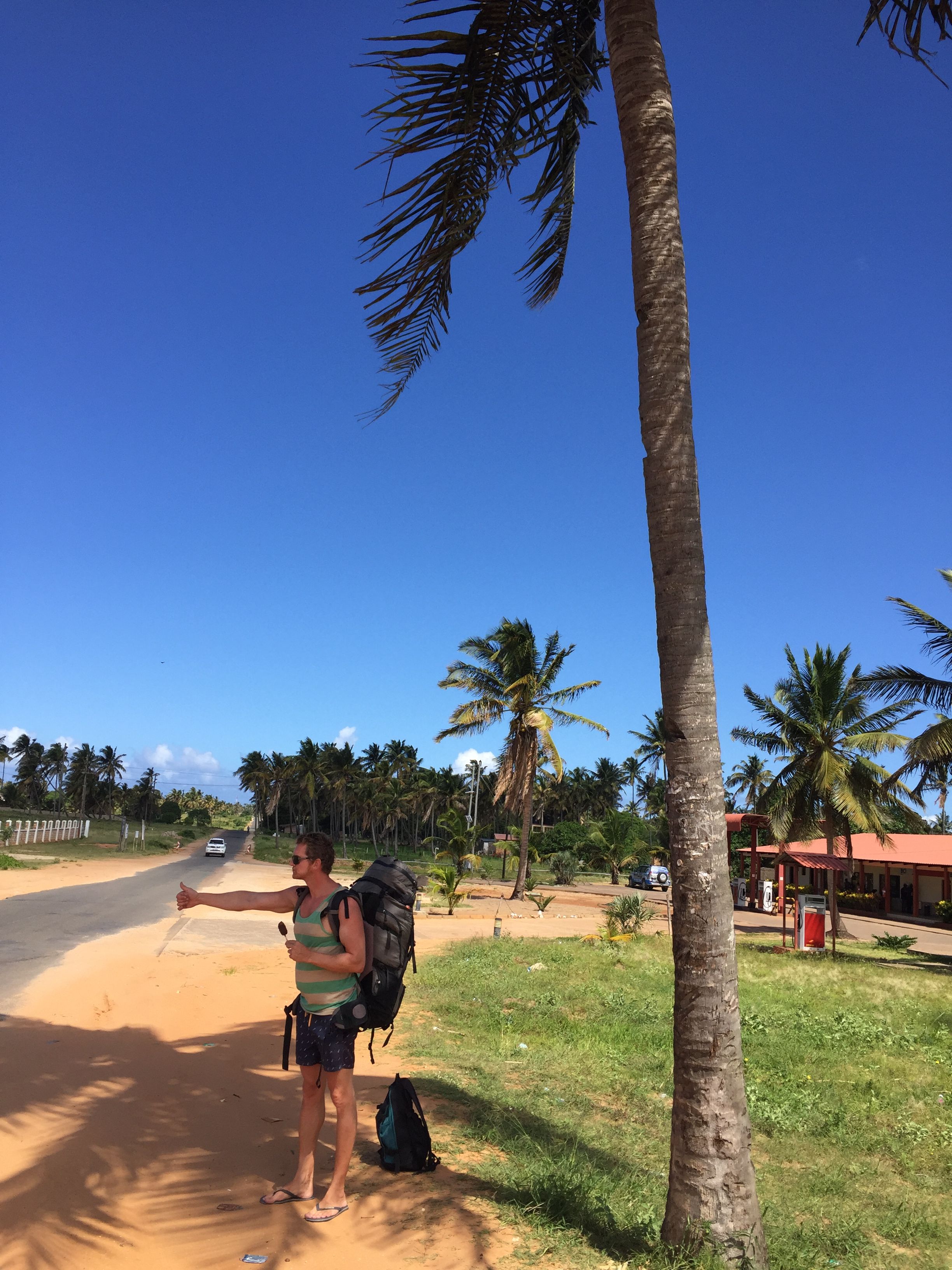
In towns like Inhambane, it’s easy to see that the Portugese have been here.
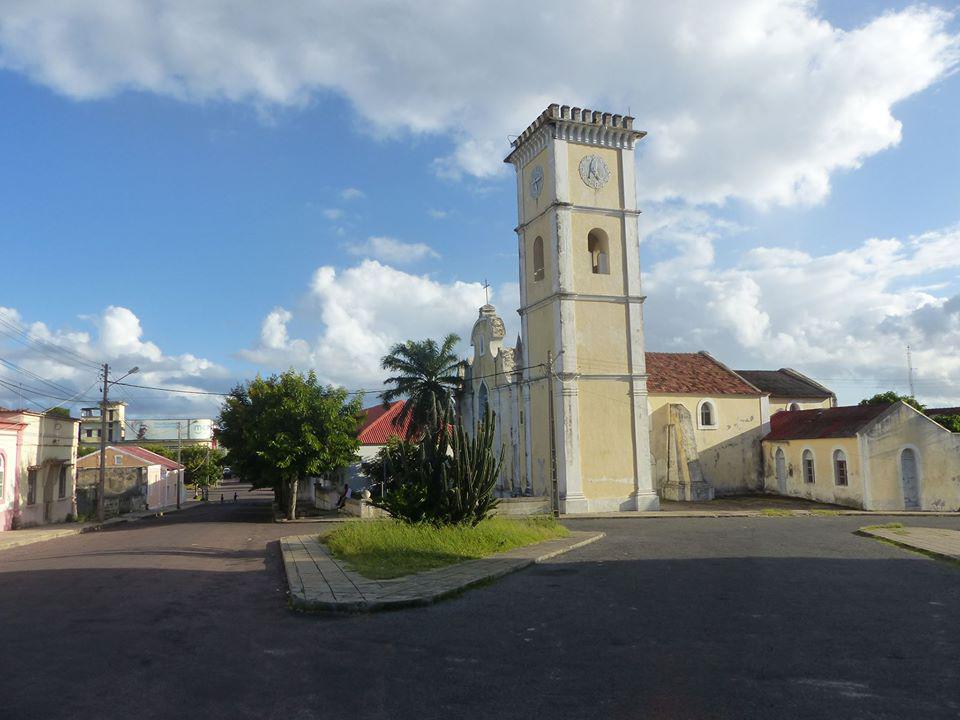
For better or worse, the Europeans have left their mark all over this continent. In Mozambique’s case, it all started when the Portugese explorer Vasco de Gama arrived in 1498.
In Zambia and Zimbabwe we saw reminders of the UK in every day things like the food and shops, and even in colloquial expressions. Here in Mozambique it occurred to us that if you’re going be colonized you might at least hope for southern European invaders. You’ll get good food and wine, and siestas. Along with the enslavement, exploitation, and decades of conflict, that is.
We met an expat here who called Mozambique ‘The Brazil of Africa’ and it was easy to see what he meant. Then again, he also characterised the beach we were on as ‘The Koh Phagnan of the ’90s’ so maybe he’s just looking for that hippie vibe. It’s got that, too. But whether you compare it to Brazil or Thailand, or just admire it for its own unique self, it’s easy to love Mozambique.
Read More
For more of our adventures (and misadventures) in Mozambique, check out the rest of my stories from the road.
